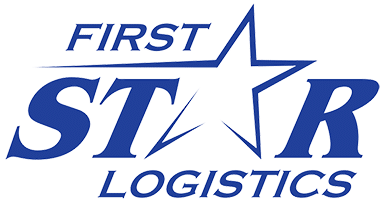Navigating the complex world of freight shipping can be a daunting task, especially for businesses that don’t have extensive experience with logistics. This is where freight brokers come in. They act as your intermediary, connecting you with carriers and ensuring your goods get shipped from point A to point B smoothly and efficiently. However, not all freight brokers are created equal. In fact, there are several different types of freight brokers, each with their own advantages, potential drawbacks, and ideal client base. So, before you sign on the dotted line, let’s review the different types of freight brokers and discover which best suits your needs.
The Agent Model Freight Brokerage
In the agent model freight brokerage, the brokers are the matchmakers of the freight world. While agent model brokers do not typically own any trucks or have direct contracts with carriers, their expertise lies in finding the perfect match between your shipment and a qualified carrier. They act on your behalf, negotiating rates and ensuring all paperwork is in order.
Advantages of Agent Model Freight Brokers
- Wide carrier network: They have access to vast pools of carriers, giving you more options and potentially landing better rates.
- Personalized service: You’ll get dedicated attention and tailored solutions for your specific needs.
- Lower upfront costs: Since they don’t own assets, their fees are often lower than other types of brokers.
Potential Drawbacks of Agent Model Freight Brokers:
- Limited control: Shippers may have less control over the carrier selection and service quality. Finding a trustworthy and well-connected broker is key to overcoming this potential challenge.
- Dependence on carriers: The success of agent model freight brokers hinges on finding reliable carriers, which can be challenging in peak seasons or for specialized shipments.
The Traditional Freight Brokerage
Traditional freight brokers are seasoned veterans of the industry with established relationships with a network of carriers. They act as your one-stop shop for all your shipping needs, handling everything from finding carriers to managing paperwork and tracking shipments.
Advantages of Traditional Freight Brokers
- Full-service solutions: Traditional freight brokers take care of everything, leaving you free to focus on your core business.
- Strong carrier relationships: They have access to a carefully curated network of reliable carriers and can often negotiate better rates.
- Industry expertise: They have a deep understanding of the industry and can advise you on the best shipping options for your needs.
Potential Drawbacks of Traditional Freight Brokers
- Higher fees: The extensive services may come at a premium price, but keep in mind that you get what you pay for, and premium service is usually worth it in the long run.
- Focus on larger shipments: These established freight brokers may not be highly selective of the loads they will ship. Due to high demand for their services, they may not be able to accommodate smaller or less profitable shipments.
The Asset-Based Freight Brokerage
Now, let’s meet the powerhouse of the industry. Asset-based freight brokers own their own fleet of trucks or have long-term contracts with carefully selected, dedicated carriers. This gives them unparalleled control over scheduling, routing, and pricing. They offer specialized hauling capabilities and cater to the industry-specific needs of their valued shippers.
Advantages of Asset-Based Freight Brokers
- Dedicated capacity: Unlike agent-based or digital brokers (another type of broker not covered here) who rely on finding carriers for each shipment, asset-based brokers have their own fleet of trucks or exclusive contracts with dedicated carriers. This gives them guaranteed capacity and eliminates the scramble to find transportation during peak seasons or for specialized shipments.
- Control over the shipping process: Asset-based brokers have greater control over the entire shipping process, from scheduling and routing to driver selection and equipment maintenance. This allows for more efficient operations, reduced transit times, and improved reliability.
- Specialized expertise: Many asset-based brokers specialize in hauling specific types of goods, such as temperature-controlled shipments, oversized cargo, or hazardous materials. They have the necessary equipment and trained personnel to handle these specialized needs safely and efficiently.
Potential Drawbacks of Asset-Based Brokers
- Higher upfront costs: Owning and maintaining a fleet of trucks is expensive. This can translate to higher upfront costs for shippers compared to using other types of brokers, who may have lower overhead. However, the benefits far outweigh the cons, as they lead to fewer shipping issues overall.
- May not be cost-effective for smaller shipments: For smaller shipments, the costs associated with using an asset-based broker can sometimes outweigh the benefits of dedicated capacity. However, the right asset-based broker can help you find the solutions that work best for your budget, regardless of the size of your load.
Finding the Right Freight Brokerage For You
A failsafe way to find the best freight broker is to partner with an experienced company. Here at First Star Logistics, we are a global, asset-based freight brokerage company with over 60 years of experience. Our core business is arranging and securing space for freight transport between states and countries using common carriers such as trucks, railroads, and ocean liners. Our shipping clients benefit from a comprehensive North American network and global reach, along with time and cost-saving technology that delivers consistent results.
To find the best freight broker, contact First Star Logistics today!



